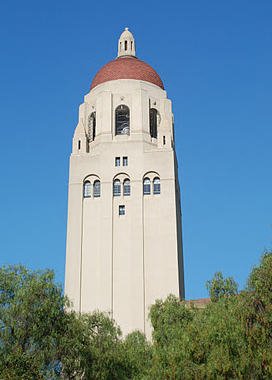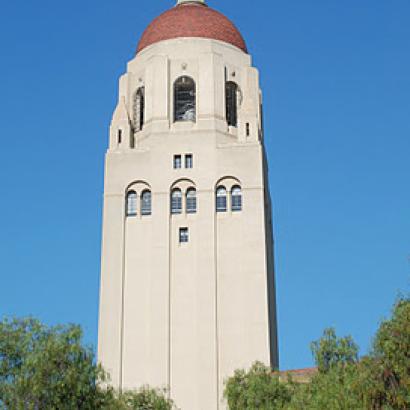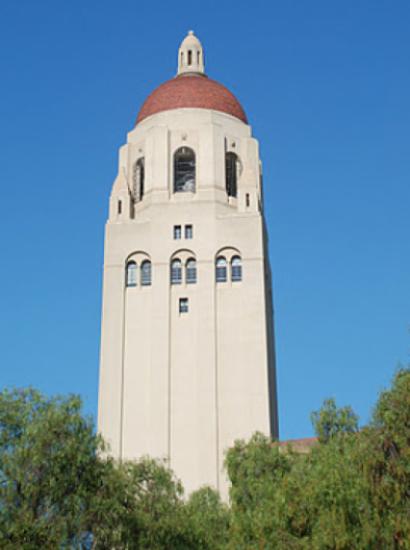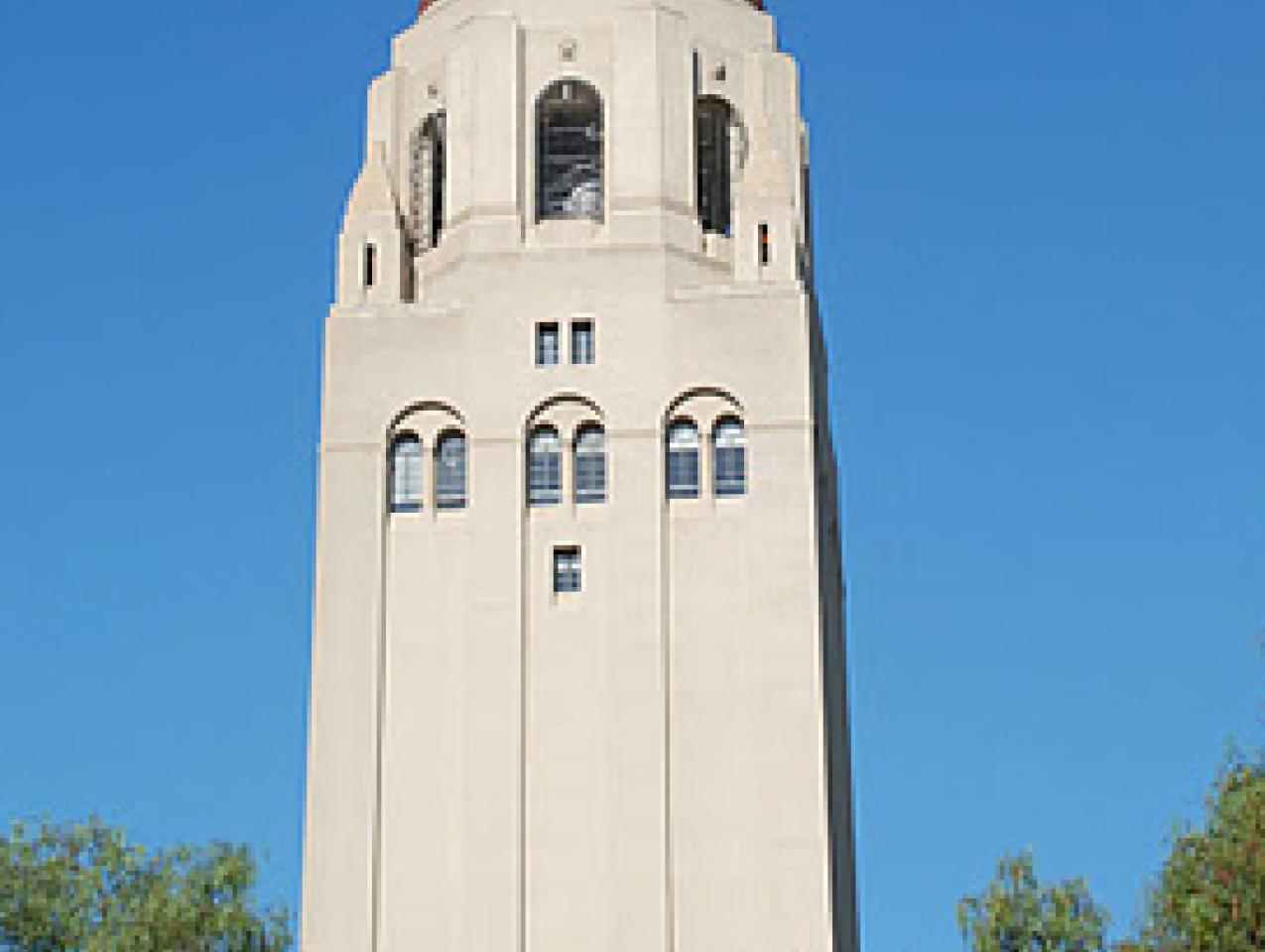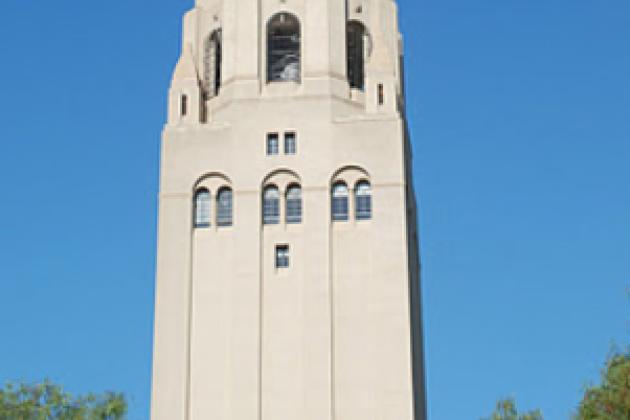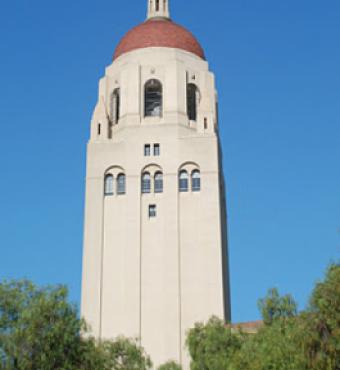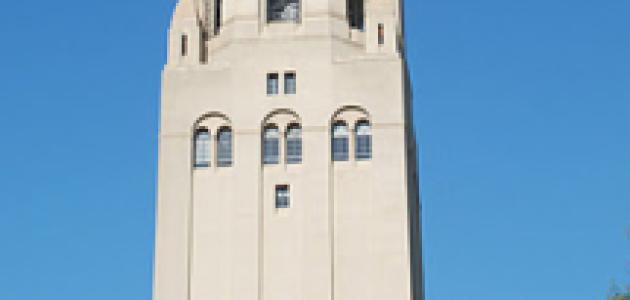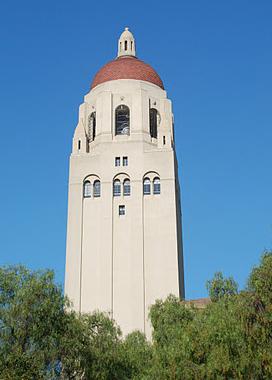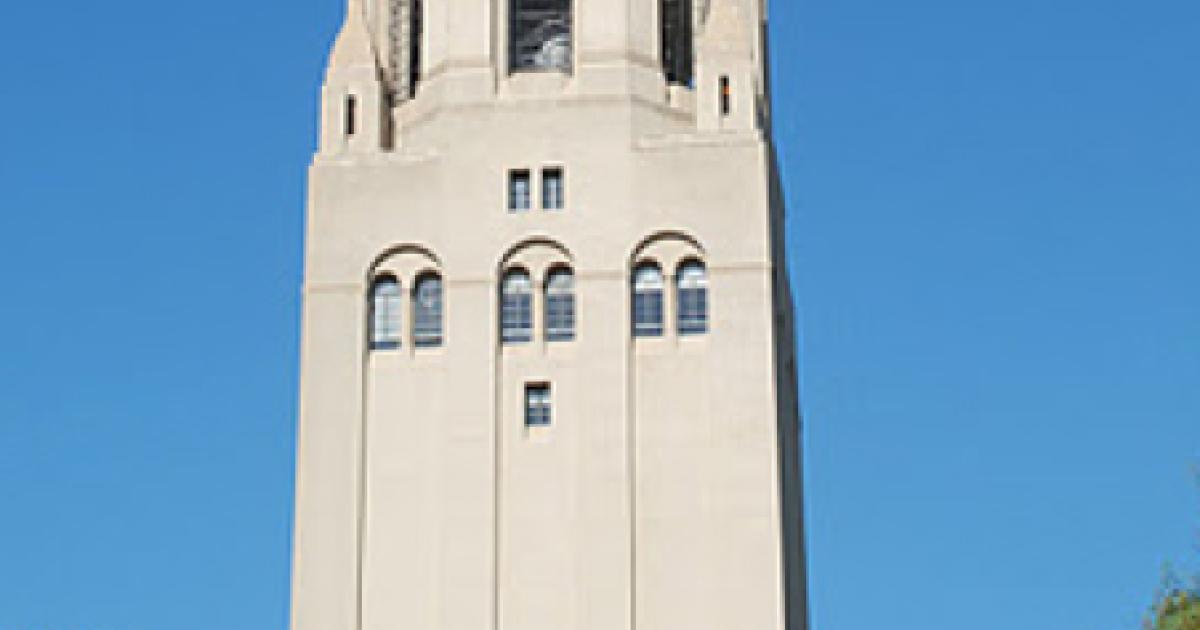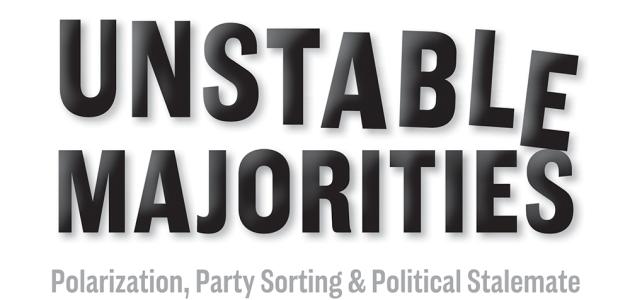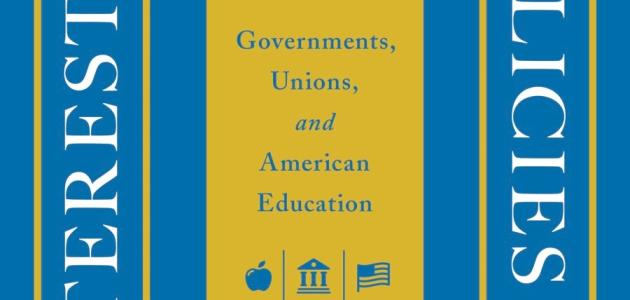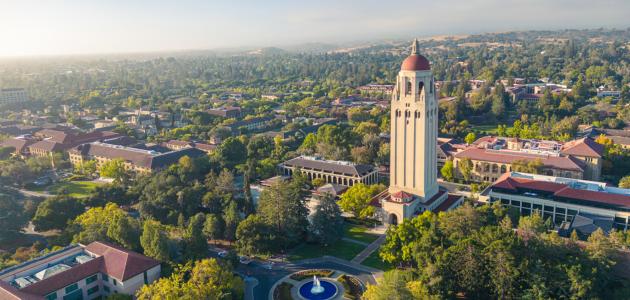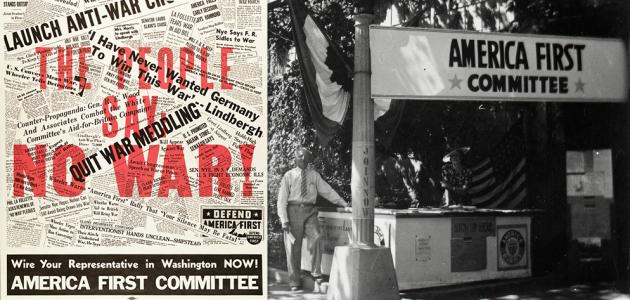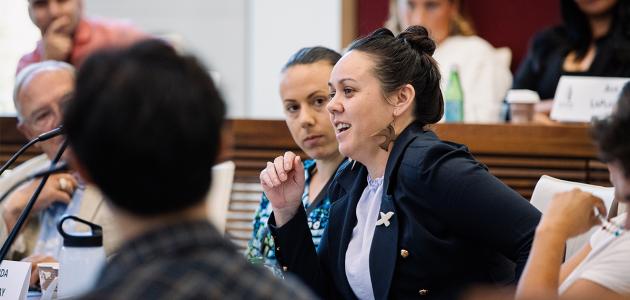The Hoover Institution is renowned globally for its high-quality scholarship on a wide breadth of subjects, ranging from economic policy to national security to history. Compiled here are the sixteen books written by Hoover fellows in 2014 with accompanying book reviews, excerpts, and additional commentaries by the authors.
Middle East
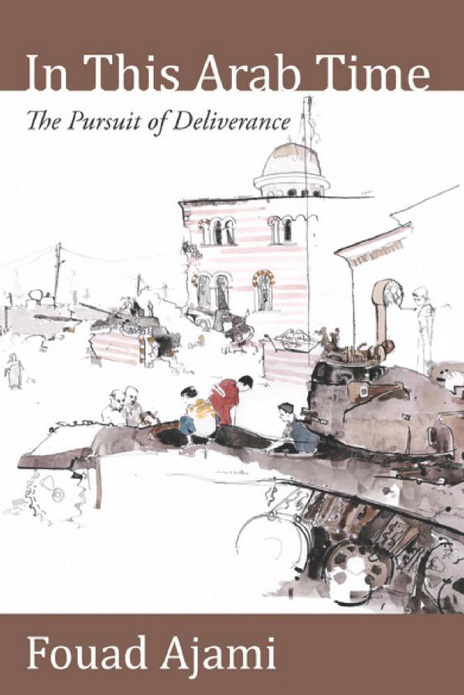
In This Arab Time: The Pursuit of Deliverance
By Fouad Ajami
This year, the Hoover Institution mourned the loss of Fouad Ajami. This book features a collection of essays that Ajami compiled before his passing, giving his perspective on a wide range of issues in the Middle East. The Wall Street Journal published a poignant review of the book and Ajami’s life, describing the collection as “elegant, rich, and sad” by “the foremost American interpreter of the Arab World.” Samuel Tadros, one of Ajami’s former students and a member of the Herbert and Jane Dwight Working Group on Islamism and the International Order, gave several interviews remembering Ajami and the importance of the essay collection, including for Wall Street Journal Live, the John Batchelor Show, and Bill Bennett’s Morning in America.
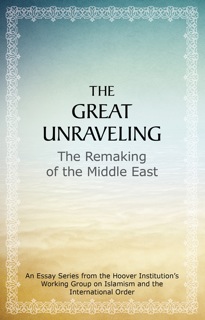
The Great Unraveling: The Remaking of the Middle East
By the Herbert and Jane Dwight Working Group on Islamism and the International Order
Over the course of three months, the Herbert and Jane Dwight Working Group on Islamism and the International Order released an essay series in six books. Three of those essays were written by Hoover senior fellows. In Retreat: America’s Withdrawal from the Middle East, by Russell Berman, explains how the US withdrawal from the Middle East could have long-term consequences, as other states come forward to fill the gap. He details how a great retreat has begun and how the reduction of the US commitment has, in turn, set off a wave of repercussions. The Weaver’s Lost Art, by Charles Hill, uses the analogy of weaving to review the United States’ historical responsibility for maintaining international peace and security. He shows why the United States must marshal all possible elements in the Middle East, and supporters from without, to defeat enemies of order in the region. The Struggle for Mastery in the Fertile Crescent, by Fouad Ajami, analyzes the struggle for influence along the Fertile Crescent—the stretch of land that runs from the Iranian border with Iraq to the Mediterranean—among three of the regional powers who have stepped into the vacuum left by the West: Iran, Turkey, and Saudi Arabia. Ajami discusses each country’s prospects for supremacy and asserts that Iran must be reckoned to be the strongest. The Hoover publication Defining Ideas published excerpts of Berman’s, Hill’s, and Ajami’s essays.
Foreign Affairs and National Security
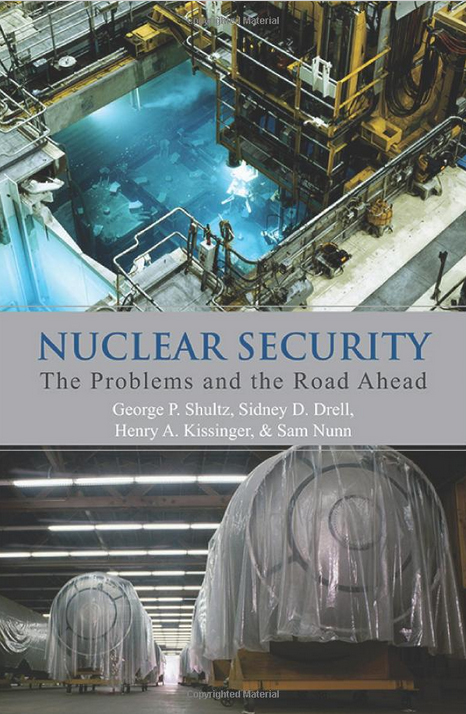
Nuclear Security: The Problems and the Road Ahead
By Sidney Drell, Henry Kissinger, Sam Nunn, and George Shultz
What can we learn from the earlier positive negotiations? What has gone wrong and where do we go from here? Drawing from papers presented at the 2013 meeting of the American Nuclear Society, the contributors to this volume, all known for their long-standing interest in getting better control of the threats posed by nuclear weapons and reactors, wrestle with these questions, discussing what we can learn from past successes and failures and identifying the key ingredients that can lead us toward a world free of nuclear weapons.
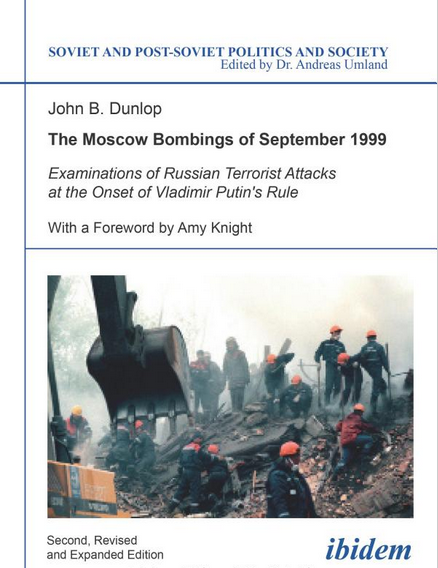
The Moscow Bombings of September 1999: Examinations of Russian Terrorist Attacks at the Onset of Vladimir Putin’s Rule
By John B. Dunlop
After the fall from the glittering winter Olympics in Sochi to the hated creator of anarchy in Crimea and Ukraine, Vladimir Putin surely was a serious candidate for many man-of-the-year lists, thus sparking renewed interest in the man himself, and how he came to power. Released earlier this year by Senior Fellow John Dunlop, this volume examines precisely those questions. In particular, he studies the political struggles from May through September 1999, culminating in the Russian invasion of Chechnya. Although released with little fanfare, the book is a worthy read for anyone interested in the region.
Economics
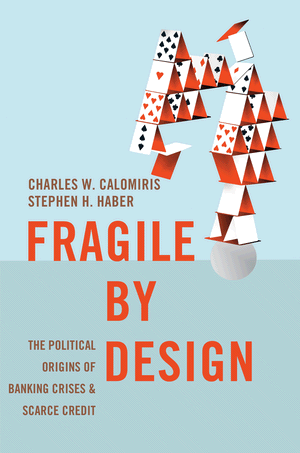
Fragile by Design: The Political Origins of Banking Crises and Scarce Credit
By Stephen Haber and Charles Calomiris
Fragile by Design, by Stephen Haber, a senior fellow at Hoover and the director of Hoover’s IP2 working group, and Charles Calomiris, a member of Hoover’s IP2, has been named one of the best books of the year by the Financial Times. It received stellar reviews from not only the Financial Times, but also the New York Times, Barron’s, and the National Review, as well as a feature in the Wall Street Journal’s Notable & Quotable. To promote their book, Haber and Calomiris appeared on a special episode of EconTalk with Hoover research fellow Russell Roberts that was broadcast live from the Hoover Institution in Washington, DC. They also wrote op-eds for Foreign Affairs, National Review Online, and PBS Newshour, as well as a special interview about the book with National Review Online. Haber also published an op-ed (coauthored with Ross Levine, who is on the steering committee for IP2) on the subject in the Wall Street Journal, and discussed the book for his talk at the Hoover 2014 Fall Retreat. To find more information and media coverage about the book, see the Fragile by Design website.
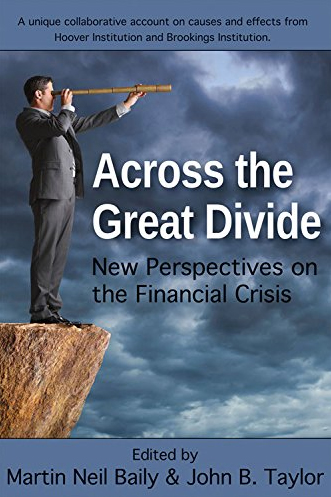
Across the Great Divide: New Perspectives on the Financial Crisis
Edited by John Taylor and Martin Neil Baily
In 2013, the Hoover Institution and the Brookings Institution held a joint conference on the state of the financial system. This year, Hoover senior fellow John Taylor and Brookings senior fellow Martin Neil Baily released a book that compiled the presentations from the conference. It was featured by the Bradley Foundation. For a sneak peek of some of the chapters, Taylor’s is published as a working paper on the Hoover website, and Hoover senior fellow John Cochrane published a blog post on Grumpy Economist with links to his remarks, Larry Summers’s remarks, and his general analysis of the conference. To launch of the book, Taylor and Baily held a special book discussion at the Hoover Institution in Washington; a video of that talk is available on the Hoover website.
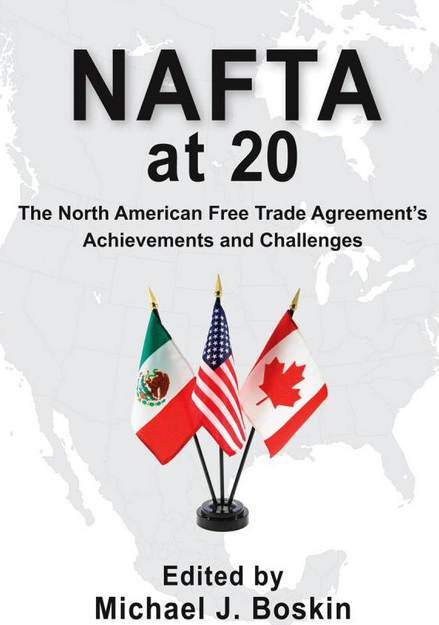
NAFTA at 20: The North American Free Trade Agreement’s Achievements and Challenges
Edited by Michael Boskin
The Hoover Press published another book to commemorate a conference from 2013: the “NAFTA at Twenty” conference from December 2013, to be precise. This book presents an expert view of NAFTA from the perspective of economists, historians, and policy makers in the words of those who negotiated it and whose research evaluates it. The contributors describe NAFTA’s origins, from when the idea was born to its goals, detailing the give-and-take in the negotiations, the extensive consultation with business and labor groups in their respective countries, and the complex navigation of US congressional approval. Videos of the sessions of the conference are available on the Hoover website.
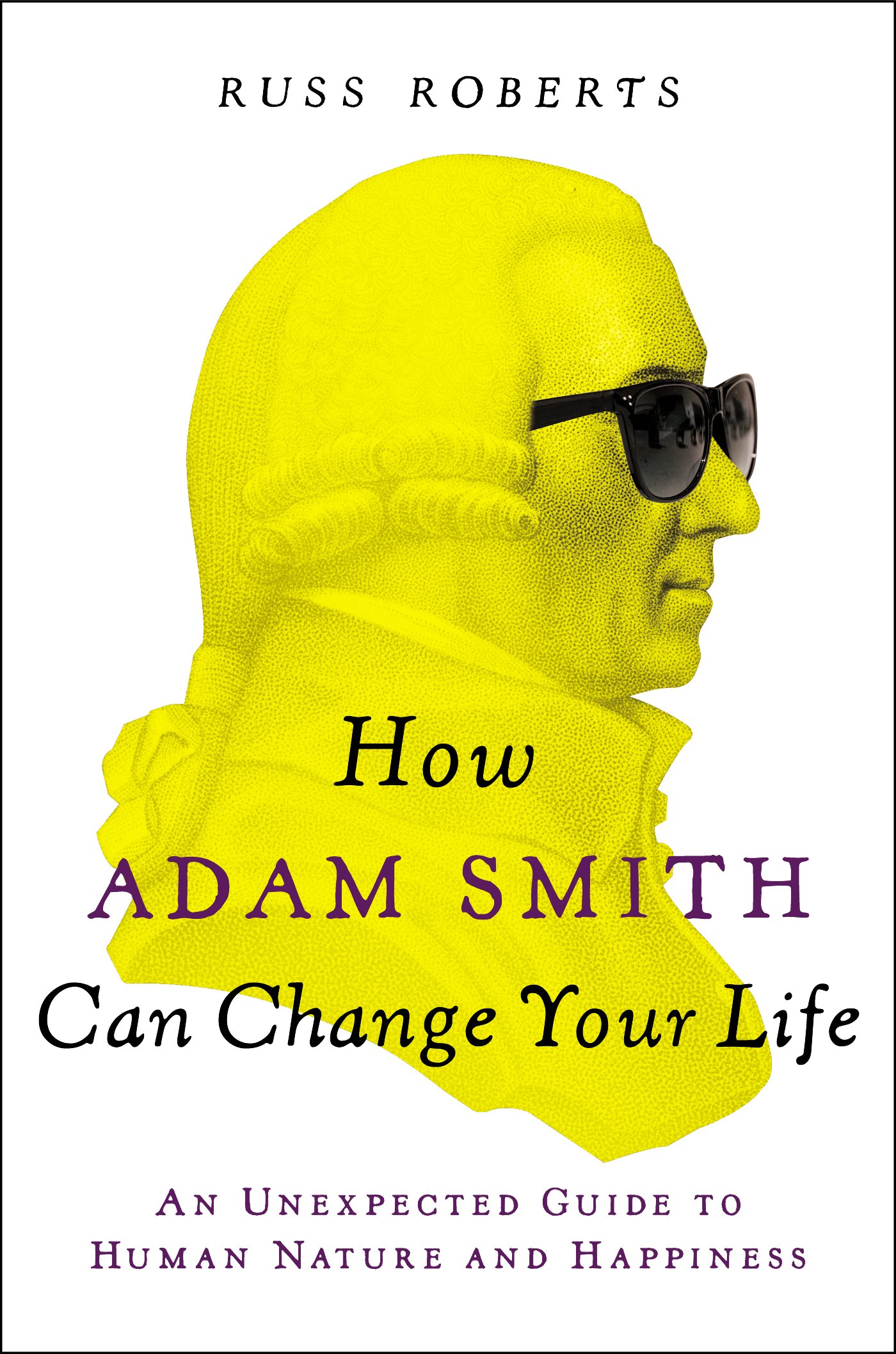
How Adam Smith Can Change Your Life: An Unexpected Guide to Human Nature and Happiness
By Russell Roberts
Few people realize that the famous economist Adam Smith had a philosophical side, which he documented for the world in great detail in The Theory of Moral Sentiments. Research fellow Russell Roberts analyzes and explains his lesser-known work in this accessible and insightful book. If readers are not prepared to dive into philosophical theories on human nature, Roberts did several in-depth interviews, discussions, and promotions for his book to whet their appetite. In addition to receiving great reviews from the Wall Street Journal, the IMF publication Finance and Development (Roberts published a thoughtful rebuttal on his blog, Café Hayek) and the New York Post, Roberts discussed The Theory of Moral Sentiments with Nobel Laureate Vernon Smith in an episode of Roberts’s podcast Econtalk, in an interview with the Cato Institute’s Caleb Brown, in his engaging talk for the Hoover 2014 Fall Retreat, as well as a special episode of EconTalk with Mike Munger interviewing Roberts. The Hoover publication Defining Ideas also published an excerpt from the book.
Energy
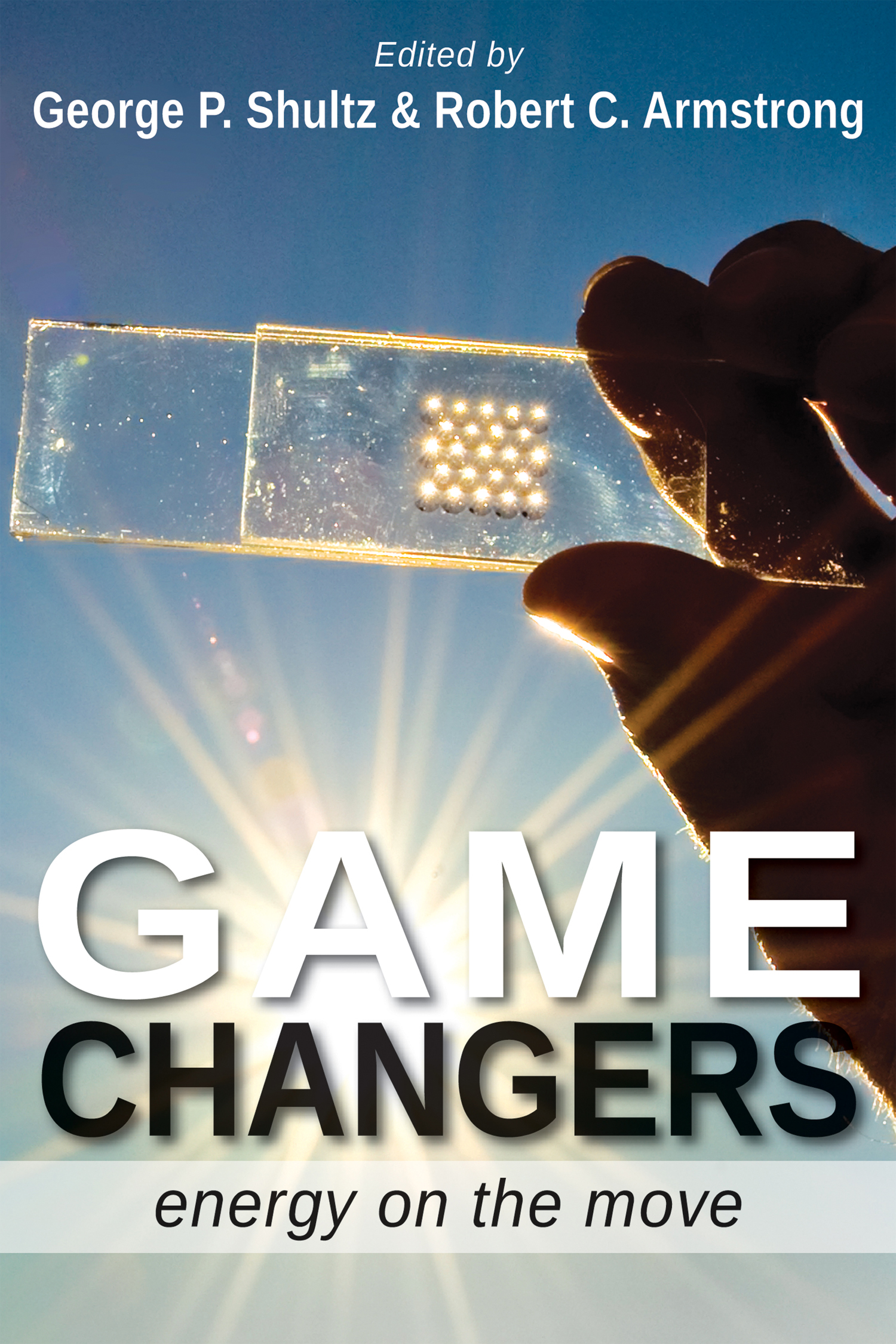
Game Changers: Energy on the Move
By George Shultz and Robert Armstrong
For several years, the Hoover Institution and the Massachusetts Institute of Technology Energy Initiative have collaborated on energy research for a cheaper, cleaner, and more secure national energy system. The product of this collaboration is Game Changers, edited by Hoover distinguished fellow George Shultz and MIT Energy Initiative director Robert Armstrong with contributions from Hoover research fellows Jeremy Carl and Commander David Slayton. The Hoover publication Defining Ideas published an excerpt from the book. In addition to the book, the teams have compiled a website, www.energygamechangers.org, to be an online resource on for emerging energy technologies.
Education
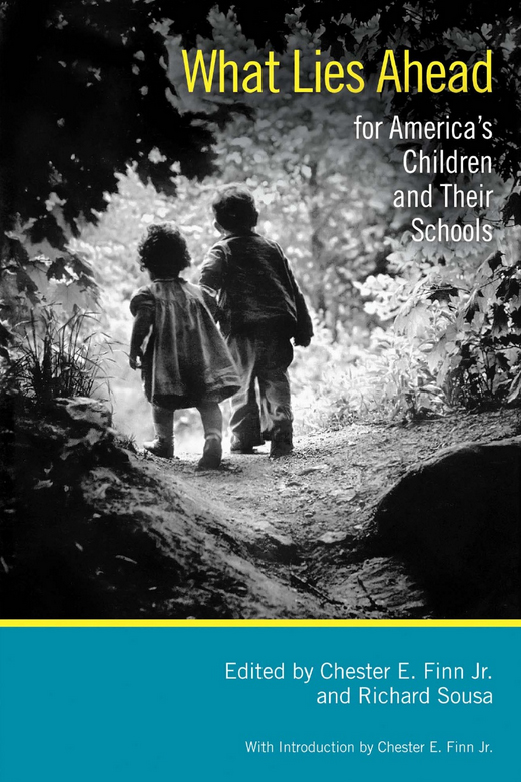
What Lies Ahead for America’s Children and Their Schools
By the Koret Task Force on K-12 Education, edited by Chester Finn Jr. and Richard Sousa
The Koret Task Force on K-12 Education ended after sixteen years of collaboration this year. For their final project and book, the task force examined both the potential gains and the pitfalls that lie ahead for education in the United States, producing the volume What Lies Ahead. The book chapters can by individually downloaded from the Hoover website. The Hoover publication Defining Ideas ran a series of excerpts for the book, including the essays by Senior Fellows Terry Moe, Eric Hanushek, Caroline Hoxby, and Chester Finn. The Harvard Kennedy School’s Program on Education Policy and Governance blog Education Next also ran several excerpts, including Hanushek's and Hoxby's.
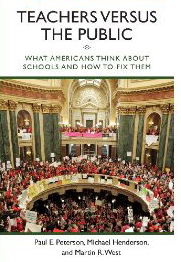
Teachers versus the Public: What Americans Think about Schools and How to Fix Them
By Paul Peterson, Michael Henderson, and Martin West
Did you know that the divisions between teachers and the public are the widest and deepest of all groups often thought to contest school policy? Did you know that this gap is the widest on issues such as merit pay, teacher tenure reform, and teacher unions? From the Brookings Institution Press, Teachers versus the Public examines the education policy views of both teachers and the public as a whole, discovering those findings and much more.
Law, History, and Values
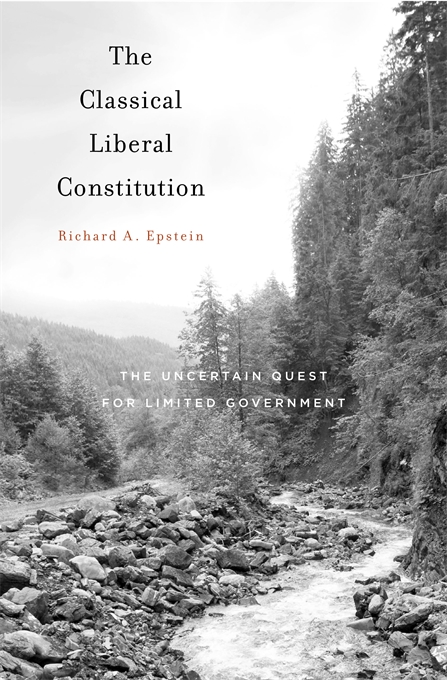
The Classical Liberal Constitution: The Uncertain Quest for Limited Government
By Richard A. Epstein
Earlier this year, Richard Epstein released an in-depth analysis of the Constitution, urging a return to the classical liberal theory of governance. It was reviewed by the Wall Street Journal and the Cato Institute. Epstein gave a preview of his book for the Libertarian Podcast series as well as an article for Defining Ideas. Epstein also released a follow-up Libertarian podcast in defense of some critics of his book.
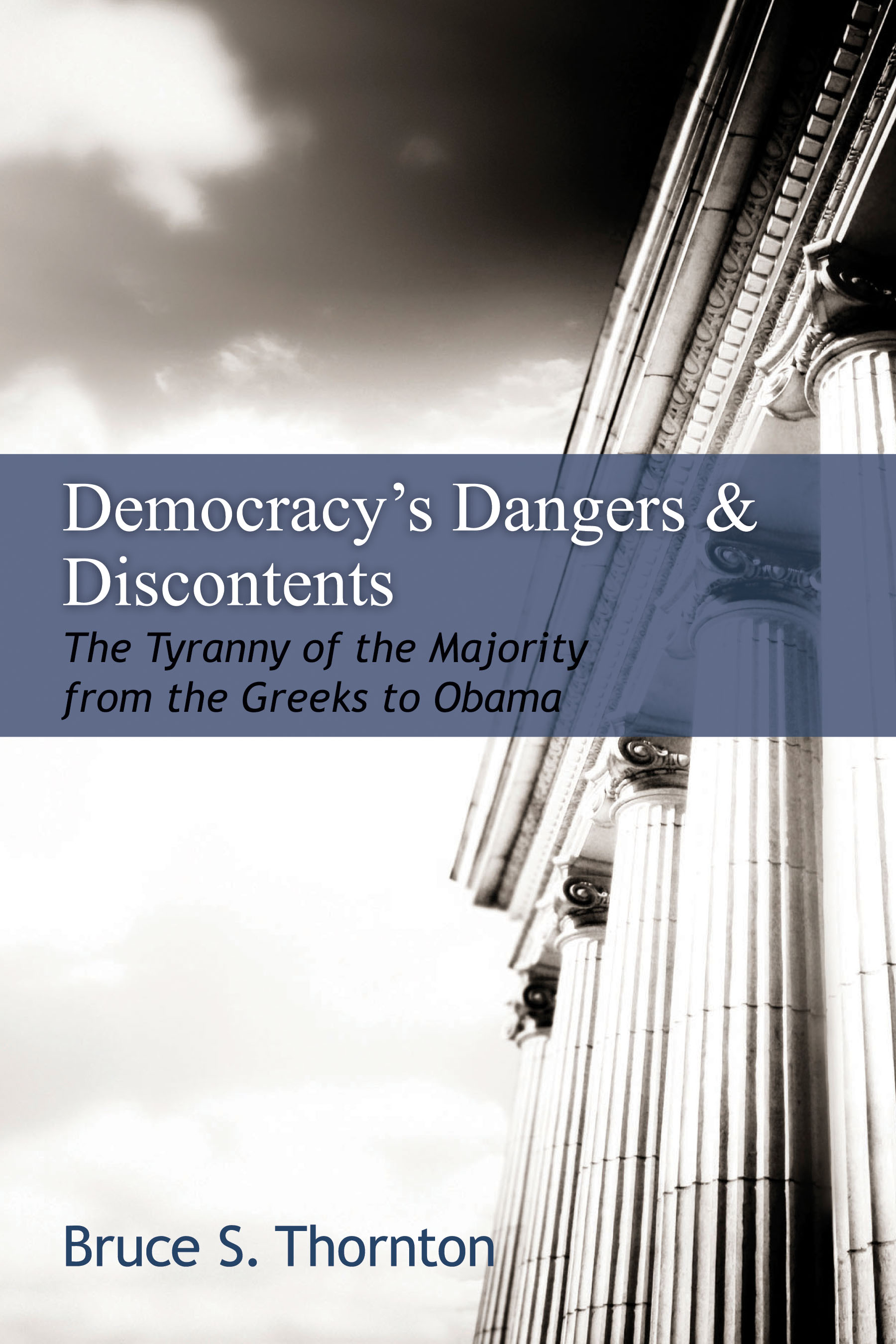
Democracy’s Dangers and Discontents: The Tyranny of the Majority from the Greeks to Obama
By Bruce Thornton
In Democracy’s Dangers and Discontents, Bruce Thornton discusses criticisms first aired by ancient critics of Athenian democracy, then traces the historical process by which the Republic of the founders has evolved into something similar to ancient democracy, and finally argues for the relevance of those critiques to contemporary US policy. He asserts that many of the problems we face today are the consequences of the increasing democratization of our government and that the flaws of democracy, being ultimately an expression of the flaws in human nature, are unlikely to be corrected. Yet, he says, the continuing vigor of the US Constitution and the American character give us hope that democracy’s dangers and discontents do not have to end in soft despotism and that we can restore the limited government of the founders and recover American democracy’s “aptitude and strength.”







